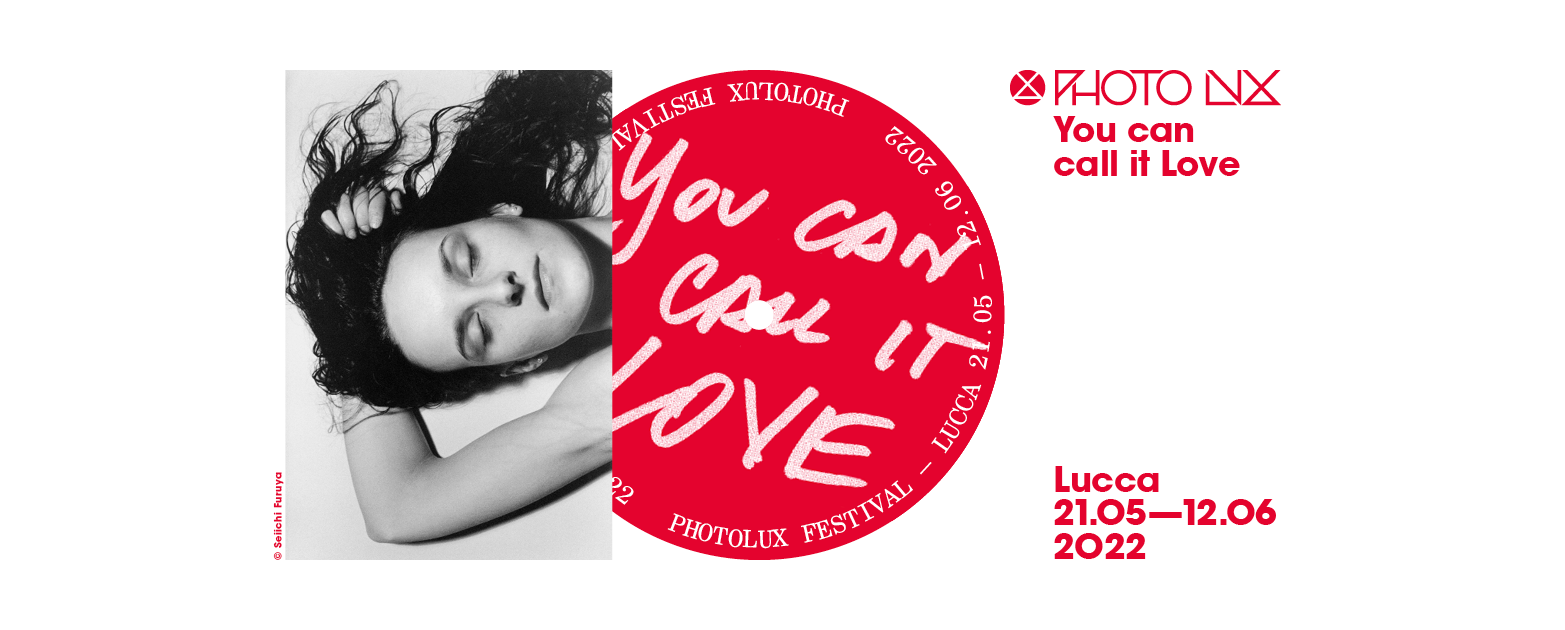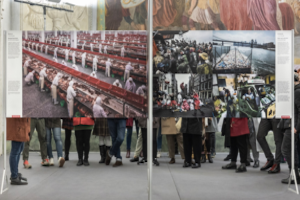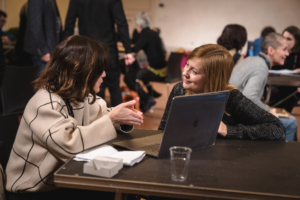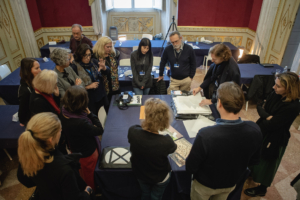Photolux Festival 2022
You can call it Love
21.05.2022 – 12.06-2022
Ancient Greek used a variety of terms to define the possible declinations of love: Eros, the passionate desire; Philia, the love between friends; Storge, the affection for relatives; Anteros, the requited love; Himeros, the physical desire; Pothos, the tension toward what we desire; Thélema, the pleasure in what one does; and Agape, the unconditional and universal love.
Most modern languages are not so precise and often, as Italo Calvino noted in his Six Memos for the Next Millennium, today there is an “automatic tendency to reduce expression to its most generic, anonymous, abstract constructions and to dilute its meanings, blunt its expressive points, and snuff every spark that flies from the collision of words with new circumstances.”
The lexicon at our disposal seems, for modesty or inadequacy, unable to outline the entirety of the kaleidoscope of feelings that life offers us every day, thus compressing the many shades of what, for lack of better terms, we call Love. But if with words it is easy to get tangled up and lost in the elaboration of abstract concepts, photography can instead help us to reconstruct the subtext of the conventional and domestic narration of love. First of all, because the photographic medium does not express itself through terms with clear boundaries, but does so through visual suggestions that resonate in us according to our personal experience; secondly, because through the grammar of images it is possible to build subtle narratives, which escape definitions, revealing unprecedented levels of reading and interpretation. Ultimately, photography gives back a stratified and polyform representation of Love, and it is precisely in the multiplicity of photographic language that the infinite possibilities of the “loving discourse” Roland Barthes spoke about are poured out: a fragmentary discourse, because it is complex, but necessary and, in its elusiveness, omnipresent in the life of each of us.
From family portraits that give back an image of the society in which they are contextualized, to the love stories that have characterized every era – sometimes revealing its contradictions as well -, love has accompanied photography in the rapid and tumultuous process of development. that distinguishes it. And while photography changed, our way of telling and experiencing Love has also changed: in fact, visual language has increasingly become one of the ways in which we learn to communicate and establish relationships with others and with us. themselves. In everyday life, photography teaches to love oneself, to get lost, to forget oneself; in a nutshell, it guides us in expressing our feelings without expecting to define their contours and give them a name.
The selection of the authors of the 2022 edition of the Photolux Festival presents the multiplicity of possible approaches – some new and contemporary, others more classic and traditional – to the theme of love, which translate into unique and different stories and encounters, where we can all find a little bit of ourselves.
With the exhibition proposal of “You can call it Love” We thought of photography no longer as a mirror or as a window – citing the historical distinction of John Szarkowski -, but as an X-ray machine, capable of seeing through us and giving voice to some sensations, desires, emotions that not even we know we have.




